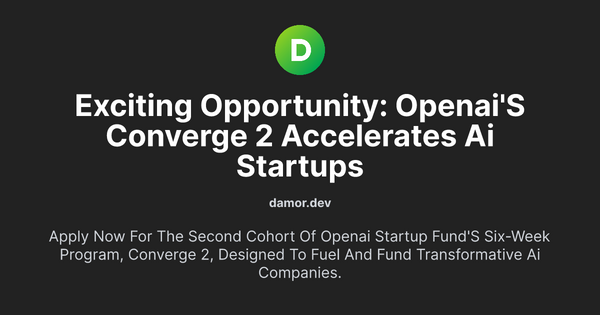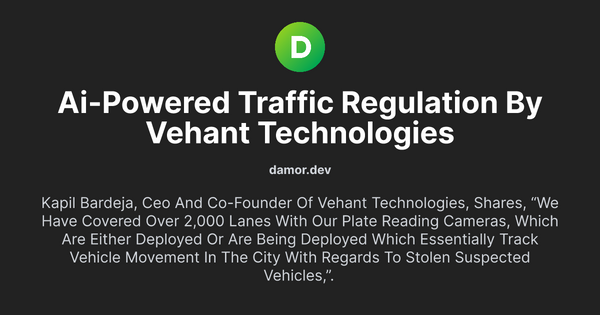Decoding Google's Struggle with Monetizing Generative AI

Why Google Struggles to Monetize Generative AI, Explained Simply
Google and Microsoft are in an AI race, but Google seems to be lagging. According to Ethan Mollick, a professor at the Wharton School, the reason lies in their revenue streams.
Google's Dilemma: - Google relies heavily on advertising, making $162.45 billion in 2022 from ads in search alone, representing 58.1% of its total revenue. - This concentration is a challenge, as integrating Large Language Models (LLMs) with ads is tricky. - Unlike Microsoft, which has diverse income sources like Azure and Windows, Google is more dependent on ads.
The Challenge with LLMs: - Google is struggling to use Large Language Models effectively, especially in its search business. - Deploying these models could reduce clicks from Google Search, hurting its ad revenue. - Despite unveiling the upcoming Google Gemini model, how Google plans to make money with it remains uncertain.
Microsoft's Strategy: - Microsoft, on the other hand, quickly monetizes LLMs, integrating them with products like Microsoft Office and Windows. - This proactive approach sets them apart.
Complexity of Precision: - Maintaining accuracy in AI-generated responses is crucial for Google, given its search engine's global use. - LLMs tend to hallucinate, providing confident yet incorrect information. - Google must address this issue, adding another layer of complexity.
Google's Caution and Size: - Google, despite having technology similar to ChatGPT early on, refrained from publicizing it due to 'reputational risk.' - The company's size (over 150,000 employees worldwide) might contribute to bureaucratic delays.
Monetizing Generative AI: - Despite having top AI talent, Google struggles to monetize generative AI. - Some believe LLMs can be integrated with ads effectively, but the path to success is unclear for Google.
In conclusion, Google faces challenges in diversifying its revenue streams and integrating LLMs with its ad-centric model. Microsoft's diversified income and proactive strategy have given it an edge. The road ahead for Google involves addressing precision issues, navigating its size, and finding a way to make generative AI work for its advertising model.


![[Solved] ZlibError:zlib:
unexpected end of file - payload](/content/images/size/w600/2024/02/Screenshot-2024-02-18-143905.png)


